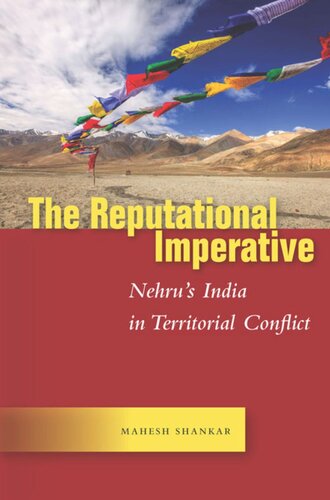

Most ebook files are in PDF format, so you can easily read them using various software such as Foxit Reader or directly on the Google Chrome browser.
Some ebook files are released by publishers in other formats such as .awz, .mobi, .epub, .fb2, etc. You may need to install specific software to read these formats on mobile/PC, such as Calibre.
Please read the tutorial at this link: https://ebookbell.com/faq
We offer FREE conversion to the popular formats you request; however, this may take some time. Therefore, right after payment, please email us, and we will try to provide the service as quickly as possible.
For some exceptional file formats or broken links (if any), please refrain from opening any disputes. Instead, email us first, and we will try to assist within a maximum of 6 hours.
EbookBell Team

5.0
80 reviewsIndia's first prime minister, Jawaharlal Nehru, left behind a legacy of both great achievements and surprising defeats. Most notably, he failed to resolve the Kashmir dispute with Pakistan and the territorial conflict with China. In the fifty years since Nehru's death, much ink has been spilled trying to understand the decisions behind these puzzling foreign policy missteps. Mahesh Shankar cuts through the surrounding debates about nationalism, idealism, power, and security with a compelling and novel answer: reputation. India's investment in its international image powerfully shaped the state's negotiation and bargaining tactics during this period.
The Reputational Imperative proves that reputation is not only a significant driver in these conflicts but also that it's about more than simply looking good on the global stage. Considerations such as India's relative position of strength or weakness and the value of demonstrating resolve or generosity also influenced strategy and foreign policy. Shankar answers longstanding questions about Nehru's territorial negotiations while also providing a deeper understanding of how a state's global image works. The Reputational Imperative highlights the pivotal—yet often overlooked—role reputation can play in a broad global security context.